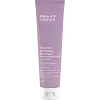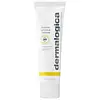What's inside
What's inside
 Key Ingredients
Key Ingredients

 Benefits
Benefits

 Concerns
Concerns

 Ingredients Side-by-side
Ingredients Side-by-side

Homosalate 10%
Skin ConditioningBenzophenone-3 6%
UV AbsorberEthylhexyl Salicylate 5%
UV AbsorberButyl Methoxydibenzoylmethane 3%
UV AbsorberOctocrylene 2%
UV AbsorberWater
Skin ConditioningButylene Glycol
HumectantPEG-8
HumectantPolyethylene
AbrasiveSilica
AbrasiveDimethicone
EmollientPicrasma Excelsa Wood Extract
AstringentSodium Ascorbyl Phosphate
AntioxidantRetinyl Palmitate
Skin ConditioningTocopherol
AntioxidantTocopheryl Acetate
AntioxidantTitanium Dioxide
Cosmetic ColorantAloe Barbadensis Leaf Juice
Skin ConditioningBentonite
AbsorbentMethyl Glucose Sesquistearate
EmollientAcrylates/C10-30 Alkyl Acrylate Crosspolymer
Emulsion StabilisingSodium Polyacrylate
AbsorbentKaolin
AbrasiveEthylhexylglycerin
Skin ConditioningDisodium EDTA
Sodium Hydroxide
BufferingPhenoxyethanol
PreservativeChlorphenesin
AntimicrobialHomosalate 10%, Benzophenone-3 6%, Ethylhexyl Salicylate 5%, Butyl Methoxydibenzoylmethane 3%, Octocrylene 2%, Water, Butylene Glycol, PEG-8, Polyethylene, Silica, Dimethicone, Picrasma Excelsa Wood Extract, Sodium Ascorbyl Phosphate, Retinyl Palmitate, Tocopherol, Tocopheryl Acetate, Titanium Dioxide, Aloe Barbadensis Leaf Juice, Bentonite, Methyl Glucose Sesquistearate, Acrylates/C10-30 Alkyl Acrylate Crosspolymer, Sodium Polyacrylate, Kaolin, Ethylhexylglycerin, Disodium EDTA, Sodium Hydroxide, Phenoxyethanol, Chlorphenesin
Water
Skin ConditioningZinc Oxide
Cosmetic ColorantCaprylic/Capric Triglyceride
MaskingC12-15 Alkyl Benzoate
AntimicrobialDimethicone
EmollientButyloctyl Salicylate
Skin ConditioningButylene Glycol
HumectantGlycerin
HumectantSilica
AbrasivePolyhydroxystearic Acid
EmulsifyingPEG-10 Dimethicone
Skin ConditioningArgania Spinosa Kernel Oil
EmollientCordyceps Sinensis Extract
AntioxidantTrametes Versicolor Extract
Sodium Hyaluronate
HumectantCamellia Sinensis Leaf Extract
AntimicrobialEucalyptus Globulus Leaf Oil
PerfumingLavandula Spica Flower Oil
MaskingTocopheryl Acetate
AntioxidantSodium Chloride
MaskingStearalkonium Hectorite
Gel FormingPentylene Glycol
Skin ConditioningLauryl PEG-9 Polydimethylsiloxyethyl Dimethicone
Skin ConditioningPropanediol
SolventDimethicone Crosspolymer
Emulsion StabilisingSodium Citrate
BufferingPropylene Carbonate
SolventXanthan Gum
EmulsifyingCaprylyl Glycol
EmollientBisabolol
MaskingLavandula Hybrida Oil
EmollientEthylhexylglycerin
Skin ConditioningSodium Hydroxide
BufferingPotassium Sorbate
PreservativeSodium Benzoate
MaskingLinalool
PerfumingLimonene
PerfumingWater, Zinc Oxide, Caprylic/Capric Triglyceride, C12-15 Alkyl Benzoate, Dimethicone, Butyloctyl Salicylate, Butylene Glycol, Glycerin, Silica, Polyhydroxystearic Acid, PEG-10 Dimethicone, Argania Spinosa Kernel Oil, Cordyceps Sinensis Extract, Trametes Versicolor Extract, Sodium Hyaluronate, Camellia Sinensis Leaf Extract, Eucalyptus Globulus Leaf Oil, Lavandula Spica Flower Oil, Tocopheryl Acetate, Sodium Chloride, Stearalkonium Hectorite, Pentylene Glycol, Lauryl PEG-9 Polydimethylsiloxyethyl Dimethicone, Propanediol, Dimethicone Crosspolymer, Sodium Citrate, Propylene Carbonate, Xanthan Gum, Caprylyl Glycol, Bisabolol, Lavandula Hybrida Oil, Ethylhexylglycerin, Sodium Hydroxide, Potassium Sorbate, Sodium Benzoate, Linalool, Limonene
 Reviews
Reviews

Ingredients Explained
These ingredients are found in both products.
Ingredients higher up in an ingredient list are typically present in a larger amount.
Butylene Glycol (or BG) is used within cosmetic products for a few different reasons:
Overall, Butylene Glycol is a safe and well-rounded ingredient that works well with other ingredients.
Though this ingredient works well with most skin types, some people with sensitive skin may experience a reaction such as allergic rashes, closed comedones, or itchiness.
Learn more about Butylene GlycolDimethicone is a type of synthetic silicone created from natural materials such as quartz.
What it does:
Dimethicone comes in different viscosities:
Depending on the viscosity, dimethicone has different properties.
Ingredients lists don't always show which type is used, so we recommend reaching out to the brand if you have questions about the viscosity.
This ingredient is unlikely to cause irritation because it does not get absorbed into skin. However, people with silicone allergies should be careful about using this ingredient.
Note: Dimethicone may contribute to pilling. This is because it is not oil or water soluble, so pilling may occur when layered with products. When mixed with heavy oils in a formula, the outcome is also quite greasy.
Learn more about DimethiconeEthylhexylglycerin (we can't pronounce this either) is commonly used as a preservative and skin softener. It is derived from glyceryl.
You might see Ethylhexylglycerin often paired with other preservatives such as phenoxyethanol. Ethylhexylglycerin has been found to increase the effectiveness of these other preservatives.
Silica, also known as silicon dioxide, is a naturally occurring mineral. It is used as a fine, spherical, and porous powder in cosmetics.
Though it has exfoliant properties, the function of silica varies depending on the product.
The unique structure of silica enhances the spreadability and adds smoothness, making it a great texture enhancer.
It is also used as an active carrier, emulsifier, and mattifier due to its ability to absorb excess oil.
In some products, tiny microneedles called spicules are made from silica or hydrolyzed sponge. When you rub them in, they lightly polish away dead skin layers and enhance the penetration of active ingredients.
Learn more about SilicaSodium Hydroxide is also known as lye or caustic soda. It is used to adjust the pH of products; many ingredients require a specific pH to be effective.
In small amounts, sodium hydroxide is considered safe to use. However, large amounts may cause chemical burns due to its high alkaline.
Your skin has a natural pH and acid mantle. This acid mantle helps prevent harmful bacteria from breaking through. The acid mantle also helps keep your skin hydrated.
"Alkaline" refers to a high pH level. A low pH level would be considered acidic.
Learn more about Sodium HydroxideTocopheryl Acetate is AKA Vitamin E. It is an antioxidant and protects your skin from free radicals. Free radicals damage the skin by breaking down collagen.
One study found using Tocopheryl Acetate with Vitamin C decreased the number of sunburned cells.
Tocopheryl Acetate is commonly found in both skincare and dietary supplements.
Learn more about Tocopheryl AcetateWater. It's the most common cosmetic ingredient of all. You'll usually see it at the top of ingredient lists, meaning that it makes up the largest part of the product.
So why is it so popular? Water most often acts as a solvent - this means that it helps dissolve other ingredients into the formulation.
You'll also recognize water as that liquid we all need to stay alive. If you see this, drink a glass of water. Stay hydrated!
Learn more about Water